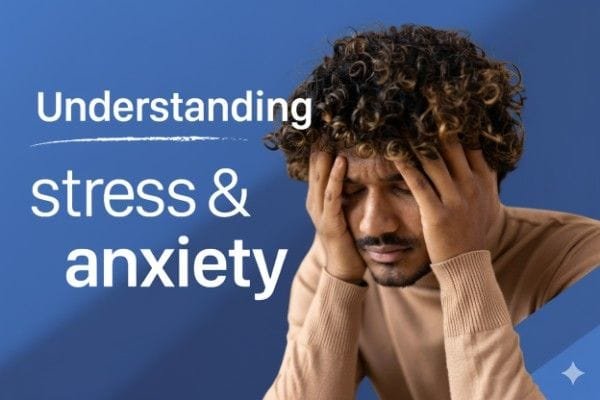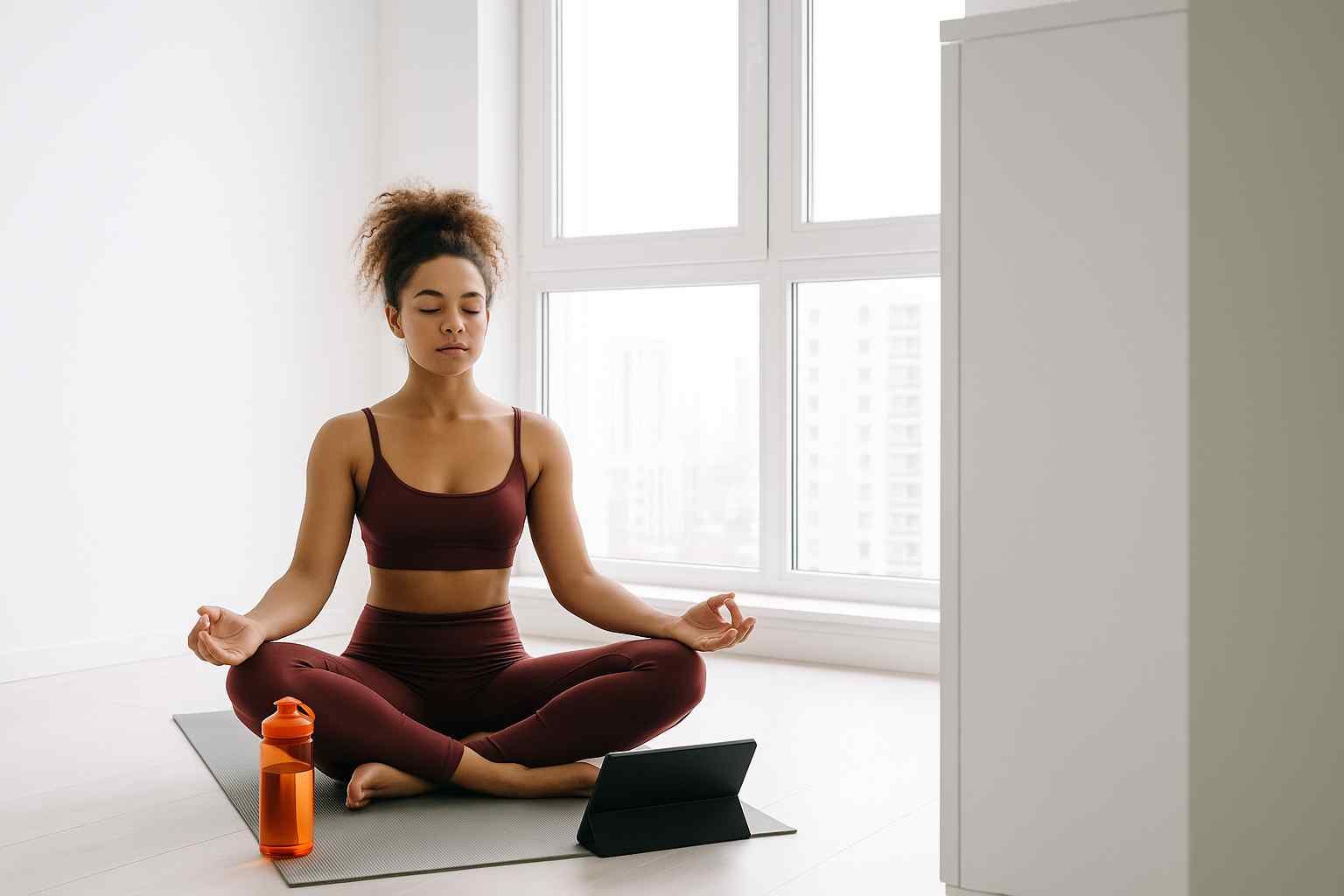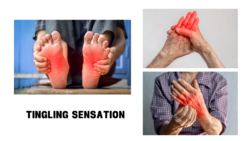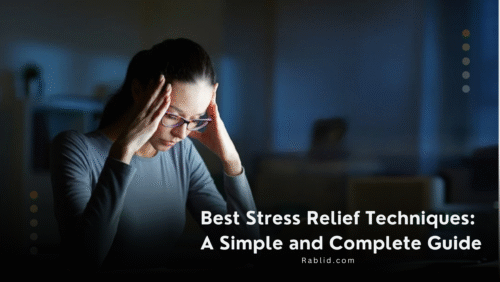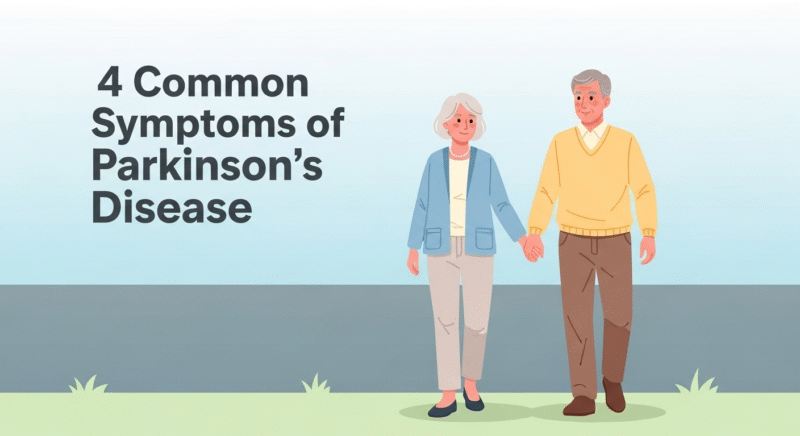It’s More Than Just Worry: The Mental Symptoms of GAD
If you’ve ever felt like your brain is a runaway train, constantly worrying about “what if” scenarios, you’re touching on a core symptom of GAD. It’s not just a passing thought; it’s a persistent, uncontrollable worry about everyday things like health, work, or family. Experts say this excessive worry is the hallmark of GAD, and it can be hard to turn off.
For example, you might spend hours worrying about a small mistake you made at work, even though your boss said it was fine. This constant mental chatter can feel draining and make it difficult to focus on anything else.
The Body Keeps the Score: Physical Symptoms of Generalized Anxiety Disorder
Did you know that anxiety doesn’t just live in your head? It often shows up in your body, too. Physical symptoms of generalized anxiety disorder are incredibly common. Research suggests that the constant state of “fight or flight” can lead to a range of physical issues.
- Muscle Tension: Ever feel like your shoulders are glued to your ears? Chronic anxiety often causes tightness, especially in the neck and shoulders.
- Restlessness: Feeling keyed up or on edge is a classic sign. It might feel like you can’t sit still or relax, even when you want to.
- Fatigue: While it might seem counterintuitive, being constantly on alert is exhausting. People with GAD often feel tired, even after a full night’s sleep.
Sleep Becomes a Struggle: Restless Nights and GAD

If you’ve spent many nights staring at the ceiling, replaying conversations or worrying about tomorrow, you know how frustrating it is. Sleep problems are a major symptom of generalized anxiety disorder. It’s a vicious cycle: anxiety makes it hard to fall asleep, and a lack of sleep makes anxiety worse the next day. A study published in a mental health journal found that sleep disturbances are a key indicator of GAD severity.
Beyond the Fidgeting: The Impact on Daily Life
It’s not just about feeling worried; GAD can impact your daily life in noticeable ways. What’s more, it often gets in the way of simple things you enjoy. This could look like:
- Difficulty concentrating: That constant buzz of worry makes it tough to focus on a book, a movie, or a conversation with a friend.
- Irritability: When your nervous system is on high alert, you might find yourself snapping at people or feeling easily annoyed. This is a common and often overlooked symptom.
- Avoidance: You might start avoiding situations that trigger your anxiety, like social gatherings or public speaking, which can shrink your world over time.
A Path Forward: Understanding and Support
Understanding the symptoms of generalized anxiety disorder is a huge first step. It’s like putting a name to a feeling you’ve had for a long time. Remember, GAD is a medical condition, not a personal failing. The good news is, it’s highly treatable.
Takeaway
If you recognized some of these symptoms, please know you’re not alone. The most important takeaway is this: feeling better is possible. Imagining feeling calmer and more in control is a powerful first step toward making it a reality. Talk to a trusted friend, family member, or a professional about what you’ve been experiencing. Reaching out is a sign of strength, and it’s the first step on a new path toward well-being.
Anxiety Disorder Symptoms Explained: Everything You Need to Know
Generalized Anxiety Disorder Symptoms Explained: Everything You Need to Know at rablid.com we have tried to find out the root cause of anxiety disorder symptoms.
Proven Ayurvedic Remedies That Instantly Crush Stress
In today’s fast-paced world, stress and anxiety have become common struggles. Many people are turning to Ayurveda, the ancient Indian system of holistic healing, for natural and effective stress relief. Unlike modern medicine, which often focuses on symptoms, Ayurveda addresses the root cause of stress, balancing the mind, body, and spirit. This article explores the best Ayurvedic remedies…
Best Free Meditation Apps & YouTube Channels 2025
Why Meditation? Simple Benefits for Beginners Meditation isn’t about emptying your mind—it’s about learning to observe your thoughts without judgment. Studies show even short daily sessions can reduce stress, improve focus, and help you sleep better 26. For beginners, guided meditations are ideal because they provide step-by-step instructions, making it easier to stay focused and calm 11.…
What is the best morning routine for mental health?
Mornings set the tone for the rest of your day. How you start your morning can either fuel stress or foster resilience, clarity, and emotional balance. In a world where anxiety and burnout are rampant, crafting a morning routine tailored for mental health isn’t just a luxury—it’s a necessity. This article breaks down a science-backed,…
Why Walking 30 Minutes a Day Can Change Your Life No Gym Required!
Staying healthy can feel overwhelming between complicated workout plans, pricey gym memberships, and the latest diet trends. But what if I told you that one simple habit could transform your health, mood, and energy levels—without stepping foot in a gym? Walking. That’s it. Just 30 minutes a day can make a huge difference in your…

